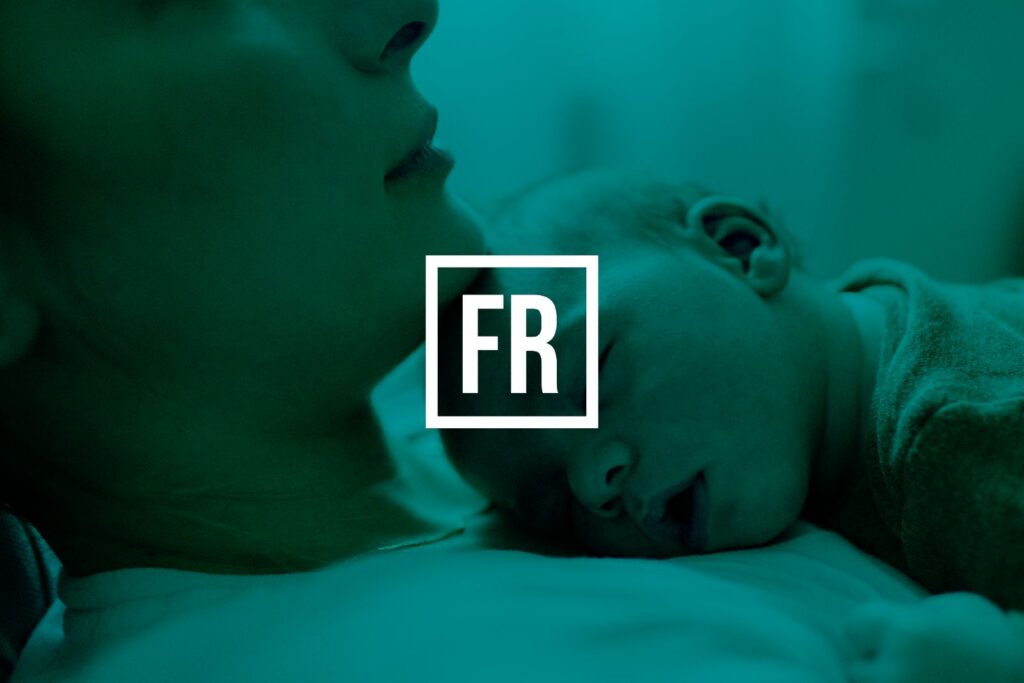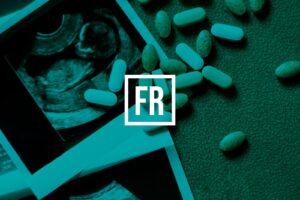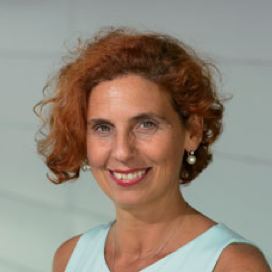Where donor embryos really come from and what are the prospects for recipient patients?
About one in six couples is affected by some degree of sub-fertility/infertility. The reasons are either female or male problems or a combination of both. The treatment is usually in-vitro fertilisation or intracytoplasmic sperm injection (IVF/ICSI) which involves the stimulation of the female ovaries to produce eggs and the fertilisation of these eggs with the partner’s sperm or donor sperm to achieve embryos. The embryos are cultured in the laboratory in special incubators which mimic the human body until there is a selection of the best embryo suitable for transfer into the woman’s uterus. Usually this occurs between day 3 and day 6 of in-vitro culture.
Approximately one in three couples have extra embryos suitable to be frozen after the fresh embryo transfer takes place. Moreover, it is recommended to transfer one embryo at a time in order to reduce the risk of multiple pregnancies which can be risky for mothers and babies. The extra embryos can be frozen and transferred in subsequent cycles to achieve another pregnancy if the fresh embryo transfer was unsuccessful or for additional attempts if desired.
Where do donor embryos come from?
Donor embryos are usually offered by patients who have had fertility treatment which resulted in stored embryos that they no longer wish to use themselves and they are considering donating them to other people. Embryo donation cycles are a small proportion and represent 2.3%–2.6% of all frozen transfers (1). Although there is greater awareness surrounding embryo donation, finding available donated embryos in the UK is still quite rare. Some clinics have a list of embryo donors that patients can choose from. Waiting lists can be long, however, particularly if patients are looking for something specific. It is advisable to consult the – choose a clinic (Fertility clinic search | HFEA) to view current donor waiting times in clinics close to a patient’s location. All UK-based clinics licensed by the HFEA must conform to strict medical, legal and ethical standards. While a donation is anonymous to both parties (donors and recipients), it is not anonymous to the offsprings who have the right to find out the details of the genetic parents at the age of 18. The donors will not be the legal parent of any child born as a result of their donation meaning there is no legal connection to the child and donors won’t be on the birth certificate. There will be no rights over the child and no financial obligations.
Who tends to seek donor embryos?
There are many people who might benefit from receiving embryos donated by other patients, in particular single infertile women who are in premature ovarian insufficiency because of previous oncology treatment or age or unknown reasons. Couples carrying genetic diseases at high risk of being transmitted to offspring or simply infertile might opt to adopt an embryo donated by another couple/individual. The process involves various stages in the donor and recipient selection and screening. There are also legal and ethical implications alongside some risks and complications. This article will explore these areas in more detail.
Age of embryo donors
In order to minimise the risk of miscarriage and having babies with congenital abnormalities the age of the egg provider at egg collection should be below 36 years and the age of the sperm provider at egg collection less than 46 years (2).
The importance of screening
It is extremely important to minimise the risk of infecting the recipient, therefore all viral screening carried out on the donors (Hep B Surface Antigen, Hep B Core Antibody, Hep C, HIV, HTLV 1-2, Syphilis, CMV, Chlamydia and Gonorrhoea) within 3 months of storage of embryos must be negative and sample stored in a screened tank. Rescreening is required after quarantine and these must be negative to continue with donation. Genetic testing will be required: karyotype and Cystic fibrosis (for Caucasian population) as aminimum (more depending on ethnic origin) these must be negative to continue with donation.
Counselling is vital
Implications counselling is required for both parties. In particular, in some countries like the UK, embryo donation is not anonymous hence it is important to understand the implications for the unborn child. If the prospective donor has children, the implications for the prospective donor in respect of the donation for themselves and their existing families and any offspring born of their donation both in the short and longer term should be discussed. If the prospective donor does not have children, the implications for themselves and any future family should be discussed.
The woman who is receiving the embryo should be assessed to make sure she is not carrying any infection and is healthy in herself. A health check (thyroid function, ferritin, vitamin B, D and folate) is recommended before planning for pregnancy. It is also important that she is assessed in her potential to carry the pregnancy; this involves performing an ultrasound scan to assess the uterus and the endometrial cavity. If the recipient is already in menopause, then the embryo transfer preparation could take place on a medicated cycle using high doses of Hormones Replacement Therapy (HRT); if she is regularly menstruated, the transfer could be performed on a natural cycle, timing the spontaneous or induced ovulation with the transfer of the embryo. In both scenarios, progesterone supplementation in form of suppositories or injections is recommended. The progesterone is the hormone that facilitates the embryo implantation and it is very important that the embryo has the perfect environment at time of transfer.
Potential complications
As with any fertility treatment unfortunately there is a risk that the embryo does not implant or implants and stops growing prematurely giving the so- called biochemical pregnancy. A biochemical pregnancy involves having a positive pregnancy test which very quickly will become negative. In 25-30% of the cases unfortunately the pregnancy results in a miscarriage and in approximately 3% in ectopic. Ectopic pregnancies are pregnancies that take place outside the endometrium, most commonly in the Fallopian Tubes but sometimes in unknown location. These pregnancies are non compatible with life and represent a serious complication for the woman’s life. Multiple pregnancies are also somehow considered a side effect of the procedure since they carry an increase risk for mums and babies. It has been reported that 23.2% of singletons coming from embryo donation cycles are preterm (1).
A similar rate of hypertensive disorders has been reported in women receiving donor embryos (4). This is most likely due to the fact that the immune system of the woman receiving the embryo donated has to deal with two different immune systems belonging to the genetic parents. This can translate into abnormalities in the placenta that are responsible for gestational hypertension or pre-eclampsia. It is recommended that women who conceive after embryo donation are followed in pregnancy by an obstetrician and have regular checks in particular regular ultrasound scans to check fetal wellbeing. Sometimes aspirin is also recommended in particular if the pregnant woman is of advanced age.
Challenges
The main challenge of an embryo donation programme is to find the embryos since there are not many couples/individuals willing to donate them. There is more availability of eggs or sperm donors than embryos donors. Other challenges could be matching donor/recipient because of the limited choice.
Availability is still ad hoc and patchy. If patients want to explore this route, they can find some support by approaching charities such as SEED which provides independent information to prospective donors, intended parents and surrogates, and encourage use of UK clinic donors. Some patients might decide to go abroad for embryo donation but the rules and regulations around going abroad are very different from having treatment in the UK with UK-based donors and more support might be needed.
Finally, many families join Donor Conception Network, a highly experienced charity offering an extensive range of help, support and guidance to potential and actual parents of donor-conceived people, and to donor-conceived individuals.
What impacts Embryo Donation Success?
The main factor affecting the success of embryo donation is the age of the woman donating the embryo/s. As with everything to do with fertility, woman’s age is the prime factor in determining the success of the outcome. Since donated embryos are usually accepted from women of young age, the chance of implanting and giving a successful pregnancy is quite high and the risk of miscarriages or having children with congenital abnormalities reduced. Folic acid preconception is advisable to reduce the risk of spina bifida; smoking and drinking are highly contraindicated. The woman who receives the embryo is required to have a healthy womb in order to allow a successful outcome.
Approx one in three couples have extra embryos suitable to be frozen.
References:
- Kawwass JF, Crawford S, Hipp HS, Boulet SL, Kissin DM, Jamieson DJ, National ART Surveillance System Group. Embryo donation: National trends and outcomes, 2000 through 2013. Am J Obstet Gynecol . 2016;215:747.e1–e5.
- https://www.hfea.gov.uk/donation/donors/donating-your-embryos/
- Söderström-Anttila V, Foudila T, Ripatti UR, Siegberg R. Embryo donation: Outcome and attitudes among embryo donors and recipients. Hum Reprod . 2001;16:1120.
- Kawwass JF, Badell ML. Maternal and fetal risk associated with assisted reproductive technology. Obstet Gynecol. 2018;132:763–72.








